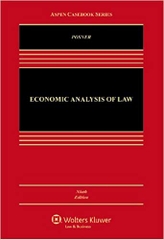-
-
-
Tổng tiền thanh toán:
-
-
Thông tin
-
Tìm sách theo yêu cầu
Which is more dangerous, a gun or a swimming pool?
What do schoolteachers and sumo wrestlers have in common?
How much do parents really matter?
These may not sound like typical questions for an economist to ask. But Steven D. Levitt is not a typical economist. He studies the riddles of everyday life—from cheating and crime to parenting and sports—and reaches conclusions that turn conventional wisdom on its head.
Freakonomics is a groundbreaking collaboration between Levitt and Stephen J. Dubner, an award-winning author and journalist. They set out to explore the inner workings of a crack gang, the truth about real estate agents, the secrets of the Ku Klux Klan, and much more.
Through forceful storytelling and wry insight, they show that economics is, at root, the study of incentives—how people get what they want or need, especially when other people want or need the same thing.
Product Details
Series: P.S.
- Paperback: 315 pages
- Publisher: Harper Perennial; 1 Original edition (August 25, 2009)
- Language: English
- ISBN-10: 0060731338
- ISBN-13: 978-0060731335
- Product Dimensions: 8 x 5.3 x 0.8 inches
- Shipping Weight: 13.6 ounces (View shipping rates and policies)
- Average Customer Review: 3.9 out of 5 stars See all reviews (1,761 customer reviews)
- Amazon Best Sellers Rank: #185 in Books (See Top 100 in Books)
- #4 in Books > Business & Money > Personal Finance
- #4 in Books > Humor & Entertainment > Pop Culture > General
- #4 in Books > Business & Money > Economics > Theory
Editorial Reviews
Review
“If Indiana Jones were an economist, he’d be Steven Levitt… Criticizing Freakonomics would be like criticizing a hot fudge sundae.” (Wall Street Journal)
“Provocative… eye-popping.” (New York Times Book Review: Inside the List)
“The guy is interesting!” (Washington Post Book World)
“The funkiest study of statistical mechanics ever by a world-renowned economist... Eye-opening and sometimes eye-popping” (Entertainment Weekly)
“Steven Levitt has the most interesting mind in America... Prepare to be dazzled.” (Malcolm Gladwell, author of Blink and The Tipping Point)
“Principles of economics are used to examine daily life in this fun read.” (People: Great Reads)
“Levitt dissects complex real-world phenomena, e.g. baby-naming patterns and Sumo wrestling, with an economist’s laser.” (San Diego Union-Tribune)
“Levitt is a number cruncher extraordinaire.” (Philadelphia Daily News)
“Levitt is one of the most notorious economists of our age.” (Financial Times)
“Hard to resist.” (Publishers Weekly (starred review))
“Freakonomics is politically incorrect in the best, most essential way.... This is bracing fun of the highest order.” (Kurt Andersen, host of public radio's Studio 360 and author of Turn of the Century)
“Freakonomics was the ‘It’ book of 2005.” (Fort Worth Star-Telegram)
“An eye-opening, and most interesting, approach to the world.” (Kirkus Reviews)
“An unconventional economist defies conventional wisdom.” (Associated Press)
“A showcase for Levitt’s intriguing explorations into a number of disparate topics…. There’s plenty of fun to be had.” (Salon.com)
“One of the decade’s most intelligent and provocative books.” (The Daily Standard)
“Freakonomics challenges conventional wisdom and makes for fun reading.” (Book Sense Picks and Notables)
“The trivia alone is worth the cover price.” (New York Times Book Review)
“An easy, funny read. Many unsolvable problems the Americans have could be solved with simple means.” (Business World)
“Economics is not widely considered to be one of the sexier sciences.... Steven D. Levitt will change some minds.” (Amazon.com)
“Provocative… eye-popping.” (New York Times Book Review: Inside the List)
“The guy is interesting!” (Washington Post Book World)
“The funkiest study of statistical mechanics ever by a world-renowned economist... Eye-opening and sometimes eye-popping” (Entertainment Weekly)
“Steven Levitt has the most interesting mind in America... Prepare to be dazzled.” (Malcolm Gladwell, author of Blink and The Tipping Point)
“Principles of economics are used to examine daily life in this fun read.” (People: Great Reads)
“Levitt dissects complex real-world phenomena, e.g. baby-naming patterns and Sumo wrestling, with an economist’s laser.” (San Diego Union-Tribune)
“Levitt is a number cruncher extraordinaire.” (Philadelphia Daily News)
“Levitt is one of the most notorious economists of our age.” (Financial Times)
“Hard to resist.” (Publishers Weekly (starred review))
“Freakonomics is politically incorrect in the best, most essential way.... This is bracing fun of the highest order.” (Kurt Andersen, host of public radio's Studio 360 and author of Turn of the Century)
“Freakonomics was the ‘It’ book of 2005.” (Fort Worth Star-Telegram)
“An eye-opening, and most interesting, approach to the world.” (Kirkus Reviews)
“An unconventional economist defies conventional wisdom.” (Associated Press)
“A showcase for Levitt’s intriguing explorations into a number of disparate topics…. There’s plenty of fun to be had.” (Salon.com)
“One of the decade’s most intelligent and provocative books.” (The Daily Standard)
“Freakonomics challenges conventional wisdom and makes for fun reading.” (Book Sense Picks and Notables)
“The trivia alone is worth the cover price.” (New York Times Book Review)
“An easy, funny read. Many unsolvable problems the Americans have could be solved with simple means.” (Business World)
“Economics is not widely considered to be one of the sexier sciences.... Steven D. Levitt will change some minds.” (Amazon.com)
From the Back Cover
More Than 4 Million Copies Sold Worldwide
Published in 35 Languages
Which is more dangerous, a gun or a swimming pool?
What do schoolteachers and sumo wrestlers have in common?
How much do parents really matter?
These may not sound like typical questions for an economist to ask. But Steven D. Levitt is not a typical economist. He studies the riddles of everyday life—from cheating and crime to parenting and sports—and reaches conclusions that turn conventional wisdom on its head. Freakonomics is a groundbreaking collaboration between Levitt and Stephen J. Dubner, an award-winning author and journalist. They set out to explore the inner workings of a crack gang, the truth about real estate agents, the secrets of the Ku Klux Klan, and much more. Through forceful storytelling and wry insight, they show that economics is, at root, the study of incentives—how people get what they want or need, especially when other people want or need the same thing.
Most Helpful Customer Reviews
275 of 298 people found the following review helpful
By Bearette24 VINE VOICE on April 30, 2005
Format: Hardcover
Steven Levitt, an economist at U Chicago, is less interested in numbers and more interested in why people turn out the way they do. He examines the influence of incentive, heredity, the neighborhood you grew up in, etc.
Some of his conclusions are less than earth-shattering. For example, African-American names (DeShawn, Latanya) don't influence African-American test performance. As a second example, Levitt compiled data regarding online dating websites and concluded that bald men and overweight women fared badly. Not rocket science.
However, Levitt livens up the book with some controversial discussions. He believes that the dramatic drop in crime in the 1990s can be traced to Roe v. Wade. He thinks that the children who would have committed crimes (due to being brought up by impoverished, teenage, single mothers) are simply not being born as often.
He also writes about the man who more or less singlehandedly contributed to the KKK's demise by infiltrating their group and leaking their secret passwords and rituals to the people behind the Superman comic book (Superman needed a new enemy).
Interestingly, he also discusses how overbearing parents don't contribute to a child's success. For example, having a lot of books in the house has a positive influence on children's test scores, but reading to a child a lot has no effect. Highly educated parents are also a plus, while limiting children's television time is irrelevant. Similarly, political candidates who have a lot of money to finance their campaigns are still out of luck if no one likes them.
In the chapter entitled "Why Drug Dealers Live With Their Mothers," Levitt explores the economics of drug dealing. An Indian, Harvard-affiliated scholar decided to get up close and personal with crack gangs and got some notebooks documenting their finances. Levitt concludes that drug dealers' empires are a lot like McDonald's or the publishing industry in Manhattan - only the people on the very top of the pyramid do well financially, while the burger flippers, editorial assistants, and low-level drug runners don't (indeed, some of them work for free, or in return for protection!)
Overall, this is a lively read, with some obvious conclusions and some not so obvious.
- Link: http://www.amazon.com/Freakonomics-Economist-Explores-Hidden-Everything/dp/0060731338
Some of his conclusions are less than earth-shattering. For example, African-American names (DeShawn, Latanya) don't influence African-American test performance. As a second example, Levitt compiled data regarding online dating websites and concluded that bald men and overweight women fared badly. Not rocket science.
However, Levitt livens up the book with some controversial discussions. He believes that the dramatic drop in crime in the 1990s can be traced to Roe v. Wade. He thinks that the children who would have committed crimes (due to being brought up by impoverished, teenage, single mothers) are simply not being born as often.
He also writes about the man who more or less singlehandedly contributed to the KKK's demise by infiltrating their group and leaking their secret passwords and rituals to the people behind the Superman comic book (Superman needed a new enemy).
Interestingly, he also discusses how overbearing parents don't contribute to a child's success. For example, having a lot of books in the house has a positive influence on children's test scores, but reading to a child a lot has no effect. Highly educated parents are also a plus, while limiting children's television time is irrelevant. Similarly, political candidates who have a lot of money to finance their campaigns are still out of luck if no one likes them.
In the chapter entitled "Why Drug Dealers Live With Their Mothers," Levitt explores the economics of drug dealing. An Indian, Harvard-affiliated scholar decided to get up close and personal with crack gangs and got some notebooks documenting their finances. Levitt concludes that drug dealers' empires are a lot like McDonald's or the publishing industry in Manhattan - only the people on the very top of the pyramid do well financially, while the burger flippers, editorial assistants, and low-level drug runners don't (indeed, some of them work for free, or in return for protection!)
Overall, this is a lively read, with some obvious conclusions and some not so obvious.
XEM CHI TIẾT TẠI AMAZON.COM
- Thông tin chi tiết
- Mục lục
- Đánh giá & bình luận của người mua
- Những cuốn sách cùng chủ đề hoặc có liên quan
Tại web chỉ có một phần nhỏ các đầu sách đang có nên nếu cần tìm sách gì các bạn có thể liên hệ trực tiếp với Thư viện qua Mail, Zalo, Fanpage nhé
Đăng ký nhận tin qua email
Hãy đăng ký ngay hôm nay để nhận được những tin tức cập nhật mới nhất về sản phẩm và các chương trình giảm giá, khuyến mại của chúng tôi.












